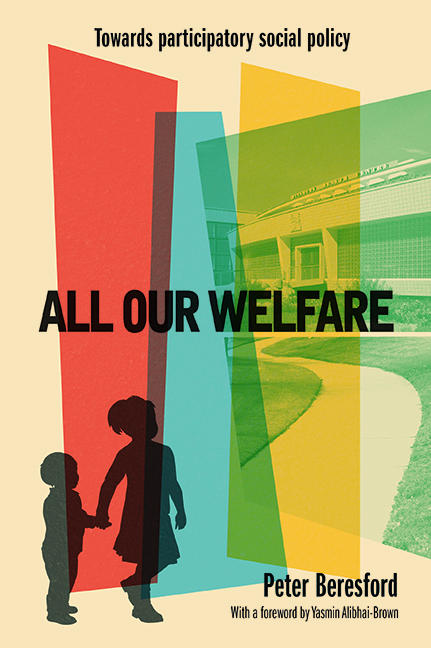Book contents
- Frontmatter
- Contents
- List of photographs and sources
- Foreword
- Dedication
- Acknowledgements
- Introduction Owning not othering our welfare
- Part One The legacy of the past
- Part Two The way to the future
- Afterword The future: a different way forward?
- Appendix One The family
- Appendix Two Research projects and related publications
- References
- Index
Two - The past
Published online by Cambridge University Press: 01 September 2022
- Frontmatter
- Contents
- List of photographs and sources
- Foreword
- Dedication
- Acknowledgements
- Introduction Owning not othering our welfare
- Part One The legacy of the past
- Part Two The way to the future
- Afterword The future: a different way forward?
- Appendix One The family
- Appendix Two Research projects and related publications
- References
- Index
Summary
Caring for the feeble, and allowing them to breed, would lead to the degeneration of humanity.
(Charles Darwin, Descent of Man, cited in Wise, 2009, 216)Laws provide, as much as is possible, that the Goods and Health of Subjects be not injured by the Fraud and Violence of others; they do not guard them from the Negligence or Ill-husbandry of the Possessors themselves.
(John Locke)The legacy of the Poor Law
The long-term history of UK social policy is the history of the Poor Law. The two are inextricably linked. It is difficult to understand the creation of the welfare state and its subsequent development without recognising this. Nearly three quarters of a century after its demise, the Poor Law still intimidates. Only very old people can have any direct experience or real remembrance of it. But its shadow still looms over us. It has long been the symbol of all that is awful about needing official help. We can still get some sense of its brutality from Dickens’ Oliver Twist or David Lean’s film version of the novel. We can get an echo of the cruelty of its ideology from the thinking and behaviour of Scrooge in Dickens’ A Christmas Carol. He is much better seen as a symbol of Poor Law philosophy, than the miser we have largely come to understand him to be (Spufford, 2014). But the Poor Law is more than an anachronistic folk memory. It was the basis for collective intervention where people couldn’t maintain themselves for perhaps a millennium. Its origins are most often associated with the great Elizabethan Acts of 1597 and 1601. But these were the culmination of more than a hundred years of earlier legislation. Indeed as unwritten law, the Poor Law can be traced back to Anglo-Saxon times.
The Poor Law may now be lost in the past and a distant and uncertain memory, but it still offers an enormous window for understanding social policy and our attitudes to it. It provides insights on almost every issue that still concerns us: political, social, personal, ethical, moral, emotional, cultural and ideological. It also has a power that continues to be inadequately recognised. This is the power to provide us with key warnings from history.
- Type
- Chapter
- Information
- All our WelfareTowards Participatory Social Policy, pp. 29 - 48Publisher: Bristol University PressPrint publication year: 2016



